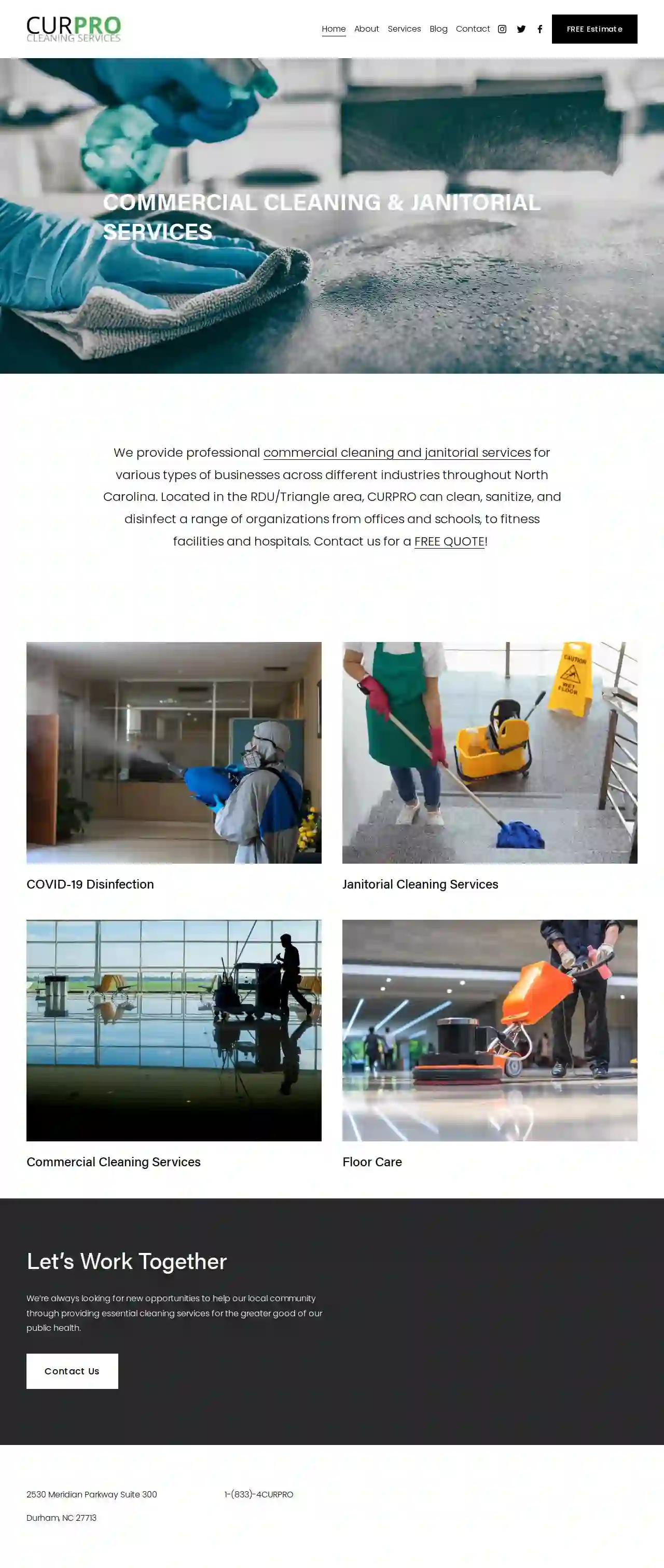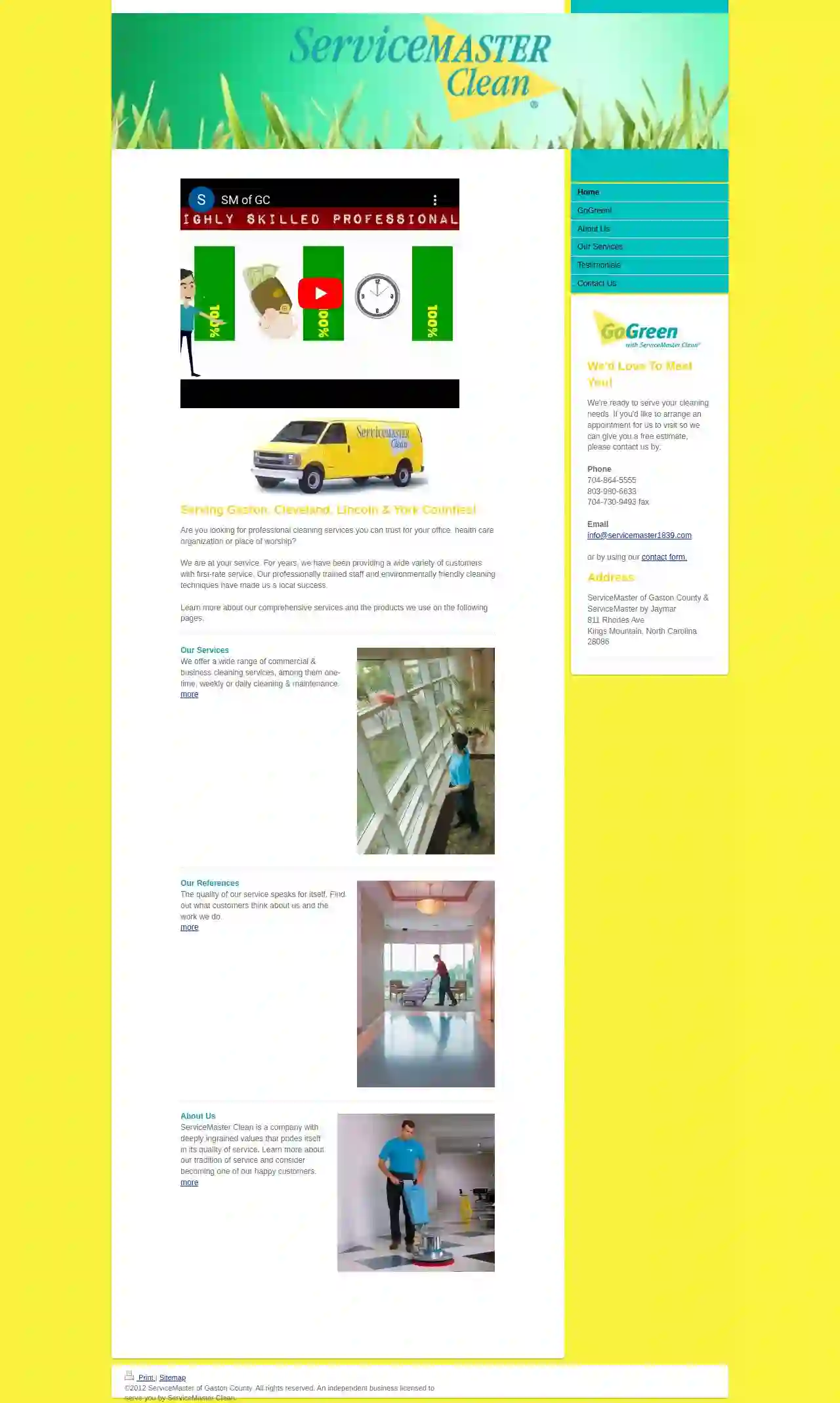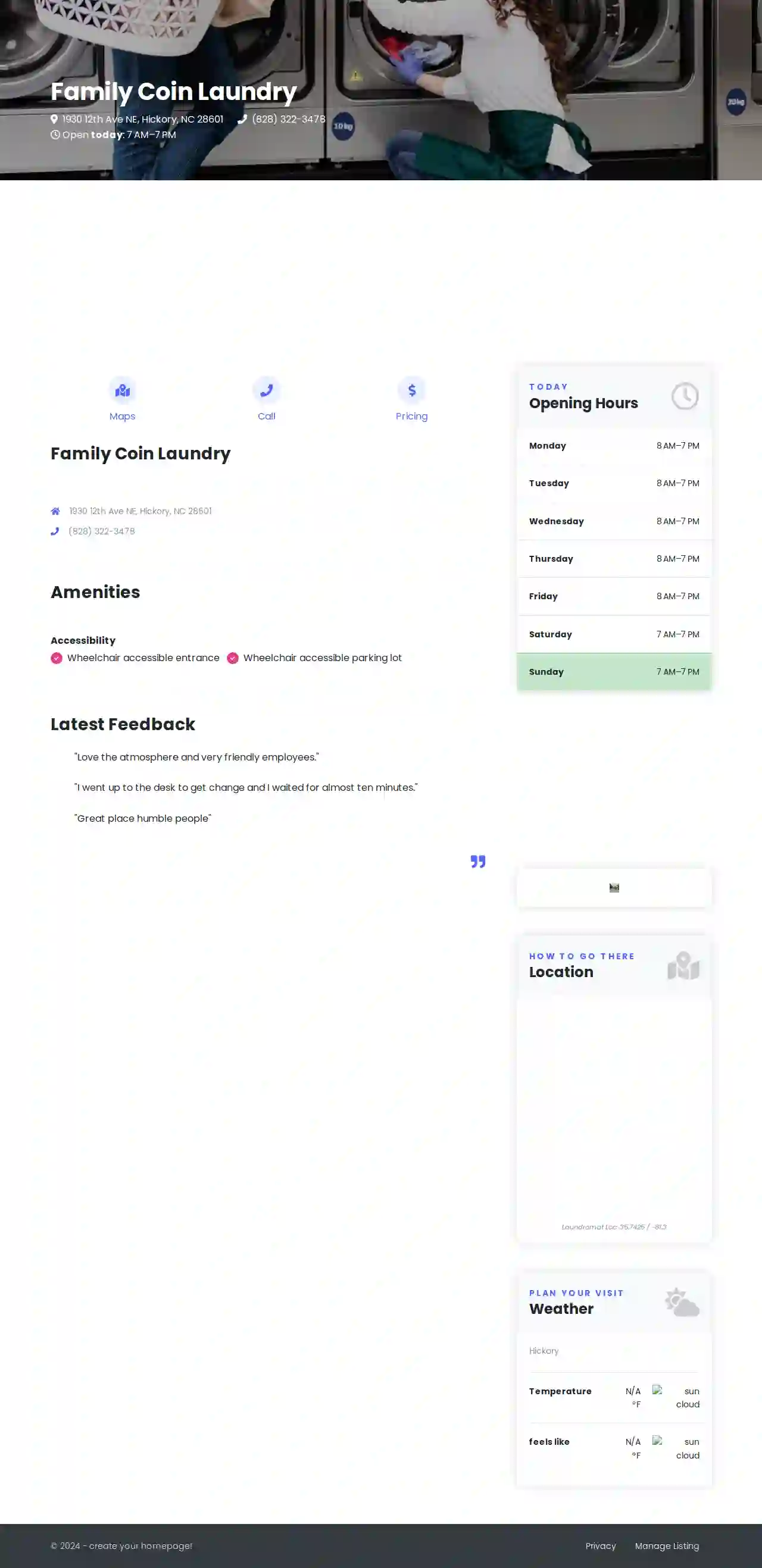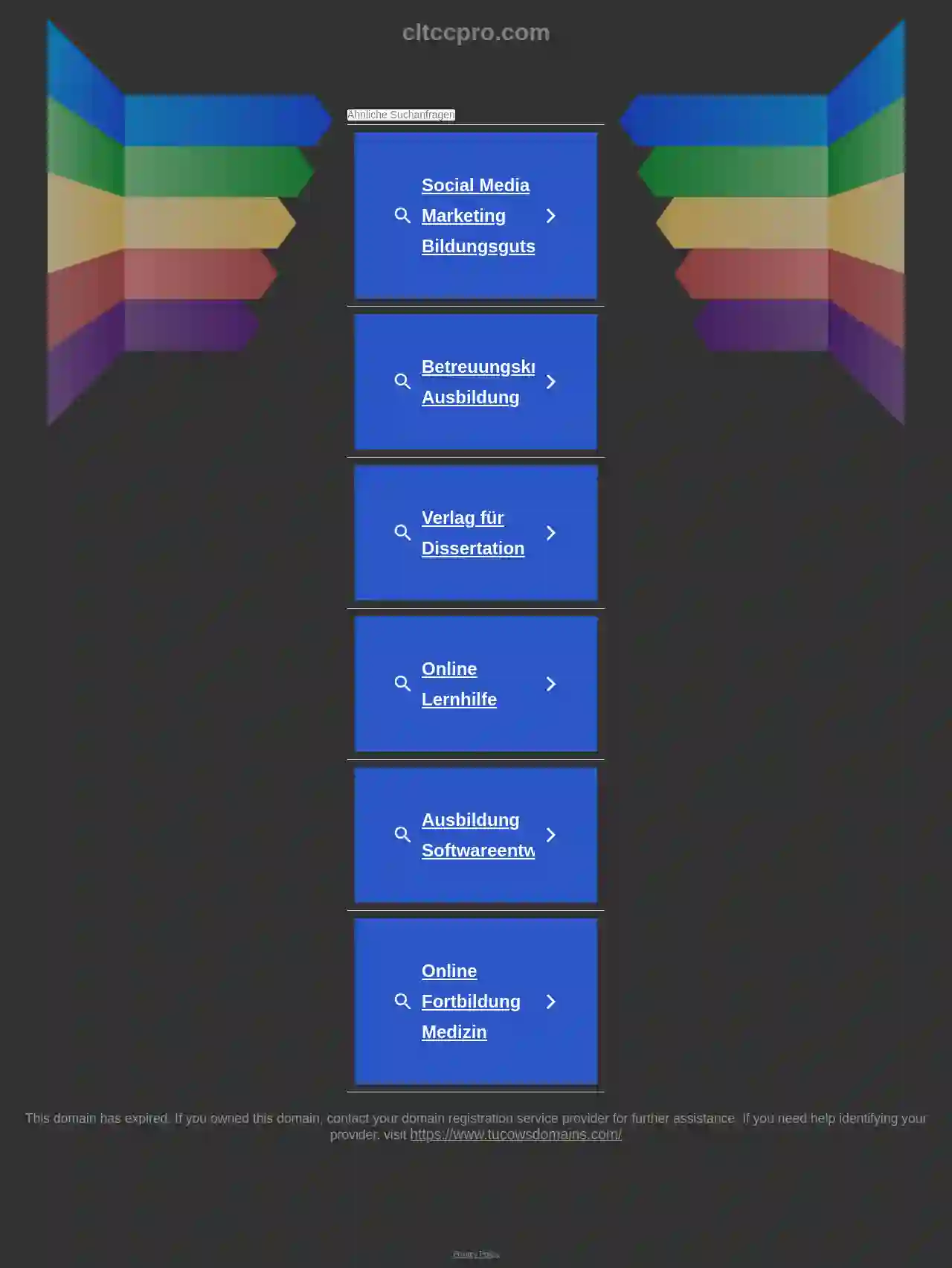Cleaning Services Davidson
Find top Professional Cleaners in Davidson
Receive 3 FREE Cleaning quotes for your project today! Compare profiles, reviews, accreditations, portfolio, etc... and choose the best offer.

Eagle Clean Group
54 reviews123 Main St, Charlotte, 28277, USAt Eagle Clean Group, we pride ourselves on being a locally-owned and operated business that provides top-notch cleaning services to the residents of North Carolina. Our team of experienced professionals is dedicated to delivering exceptional results and ensuring that our customers are completely satisfied with our work. With years of experience in the industry, we have honed our skills and developed a reputation for being reliable, efficient, and trustworthy. Whether you need residential or commercial cleaning services, we have the expertise and equipment to get the job done right. Our mission is to provide our customers with a cleaner, healthier, and more comfortable living and working environment. We achieve this by using only the highest-quality cleaning products and state-of-the-art equipment, and by employing a team of highly trained and experienced cleaning professionals. At Eagle Clean Group, we are committed to excellence and strive to exceed our customers' expectations with every cleaning service we provide.
- Services
- Why Us?
- Accreditations
- Our Team
- Testimonials
Get Quote
360clean
517 reviewsGreensboro, US- Services
- Why Us?
- Gallery
Get Quote
Molly Maid of Greensboro and High Point
4.7437 reviews123 Main St, Greensboro, 27410, USAt Molly Maid of Greensboro and High Point, we're dedicated to providing top-notch cleaning services to our residential and light commercial clients. Our team of experienced professionals uses eco-friendly products and state-of-the-art equipment to ensure a sparkling clean home or office. With our flexible scheduling options and affordable pricing, you can trust us to get the job done right. Our commitment to customer satisfaction and our Neighborly Done Right Promise set us apart from the competition. Contact us today to schedule your free estimate and experience the Molly Maid difference.
- Services
- Why Us?
- Accreditations
- Our Team
- Testimonials
- Gallery
Get Quote
CURPRO Cleaning Services
54 reviews2530 Meridian Parkway Suite 300, Durham, 27713, USAs a family owned business, we spend a great deal of our time and energy focusing on building strong relationships while providing high-quality, professional commercial cleaning service. We opened our doors in 2017 with a plan to take our cleaning experience of over 30 years into the marketplace to share our passion and skills with you. Our mission is to do our absolute best, with undeniable care and attentiveness, across every facet of our work because we care about your peace of mind. We provide professional commercial cleaning and janitorial services for various types of businesses across different industries throughout North Carolina. Located in the RDU/Triangle area, CURPRO can clean, sanitize, and disinfect a range of organizations from offices and schools, to fitness facilities and hospitals. Contact us for a free estimate on your commercial cleaning needs.
- Services
- Why Us?
- Gallery
Get Quote- So
Soo Clean LLC
510 reviewsGastonia, US- Services
- Why Us?
Get Quote 
Enviro-Master of Greenville
5151 reviewsGreenville, US- Services
- Why Us?
Get Quote
ServiceMaster C/S Of Gaston County
51 reviewsGastonia, US- Services
- Why Us?
Get Quote- Le
Leisure 2 Leisure, LLC
4.610 reviewsHigh Point, US- Services
- Why Us?
Get Quote 
Family Coin Laundry
4.2238 reviewsHickory, US- Services
- Why Us?
Get Quote
Charlotte Commercial Cleaners
51 reviewsCharlotte, US- Services
- Why Us?
Get Quote
Over 60,241+ Cleaning Services registered
Our cleaning service providers operate in Davidson and surrounding areas!
CleaningMatch has curated and vetted Top Cleaning Services arround Davidson. Find the most trustworthy business today.
Frequently Asked Questions About Cleaning Services
- Online Directories: Use online directories like CleaningMatch to search for cleaning services in your area. Filter your search results by the specific cleaning type you need.
- Search Engines: Use search engines like Google to find cleaning services specializing in your desired cleaning type. For example, search for 'post-construction cleaning services near me' or 'eco-friendly cleaning services in [city name].'
- Ask for Referrals: Ask friends, family, neighbors, or colleagues if they know of any reputable cleaning services specializing in your desired cleaning type.
- Check Company Websites: Visit the websites of cleaning services in your area to see if they list the specific cleaning type you need among their services.
- Contact Companies Directly: Contact cleaning companies directly to inquire about their specialization in your desired cleaning type.
- Experience: 'How long have you been in business, and what type of cleaning services do you specialize in?'
- Licensing and Insurance: 'Are you licensed, insured, and bonded? Can I see proof of coverage?'
- Background Checks: 'Do you conduct background checks on your employees?'
- Cleaning Supplies: 'Do you provide your own cleaning supplies and equipment, or should I provide them?'
- Cleaning Methods: 'What cleaning methods and products do you use?'
- References: 'Can you provide references from previous clients?'
- Scheduling and Availability: 'What days and times are you available for cleaning?'
- Pricing and Payment: 'What is your pricing structure, and what payment methods do you accept?'
- Cancellation Policy: 'What is your cancellation policy?'
- Satisfaction Guarantee: 'Do you offer a satisfaction guarantee? What happens if I'm not happy with the service?'
- Regular Sweeping or Dust Mopping: Sweep or dust mop hardwood floors daily to remove dust, dirt, and debris.
- Vacuuming: Vacuum hardwood floors weekly using a vacuum cleaner with a hardwood floor attachment to avoid scratches.
- Damp Mopping: Damp mop hardwood floors with a hardwood floor cleaner as needed. Avoid excessive water, as it can damage the wood.
- Prevent Scratches: Place felt pads under furniture legs to prevent scratches. Avoid dragging heavy objects across the floor.
- Avoid Harsh Cleaners: Do not use harsh chemicals, abrasive cleaners, or furniture polish on hardwood floors.
- Professional Cleaning: Consider hiring a professional hardwood floor cleaning service for deep cleaning and refinishing as needed.
- Residential Cleaning: Covers cleaning homes, apartments, and other living spaces.
- Commercial Cleaning: Focuses on cleaning offices, retail stores, and other business establishments.
- Deep Cleaning: A thorough and intensive cleaning that covers areas often neglected during regular cleaning.
- Move-In/Move-Out Cleaning: Comprehensive cleaning performed before or after moving into or out of a property.
- Post-Construction Cleaning: Specialized cleaning after construction or renovation projects to remove debris and dust.
- Specialized Cleaning: Includes services like carpet cleaning, window cleaning, upholstery cleaning, and more.
How do I find a cleaning service that specializes in [specific type of cleaning]?
By using these methods, you can find a qualified cleaning service that meets your specific cleaning needs.
What should I ask a cleaning service before hiring them?
By asking these questions, you can assess their professionalism, reliability, and suitability for your cleaning needs.
What are some tips for cleaning hardwood floors?
By following these tips, you can keep your hardwood floors looking beautiful for years to come.
What are the different types of cleaning services?
The best type of cleaning service depends on your specific needs, the size and condition of the property, and your budget.
How do I find a cleaning service that specializes in [specific type of cleaning]?
- Online Directories: Use online directories like CleaningMatch to search for cleaning services in your area. Filter your search results by the specific cleaning type you need.
- Search Engines: Use search engines like Google to find cleaning services specializing in your desired cleaning type. For example, search for 'post-construction cleaning services near me' or 'eco-friendly cleaning services in [city name].'
- Ask for Referrals: Ask friends, family, neighbors, or colleagues if they know of any reputable cleaning services specializing in your desired cleaning type.
- Check Company Websites: Visit the websites of cleaning services in your area to see if they list the specific cleaning type you need among their services.
- Contact Companies Directly: Contact cleaning companies directly to inquire about their specialization in your desired cleaning type.
By using these methods, you can find a qualified cleaning service that meets your specific cleaning needs.
What should I ask a cleaning service before hiring them?
- Experience: 'How long have you been in business, and what type of cleaning services do you specialize in?'
- Licensing and Insurance: 'Are you licensed, insured, and bonded? Can I see proof of coverage?'
- Background Checks: 'Do you conduct background checks on your employees?'
- Cleaning Supplies: 'Do you provide your own cleaning supplies and equipment, or should I provide them?'
- Cleaning Methods: 'What cleaning methods and products do you use?'
- References: 'Can you provide references from previous clients?'
- Scheduling and Availability: 'What days and times are you available for cleaning?'
- Pricing and Payment: 'What is your pricing structure, and what payment methods do you accept?'
- Cancellation Policy: 'What is your cancellation policy?'
- Satisfaction Guarantee: 'Do you offer a satisfaction guarantee? What happens if I'm not happy with the service?'
By asking these questions, you can assess their professionalism, reliability, and suitability for your cleaning needs.
What are some tips for cleaning hardwood floors?
- Regular Sweeping or Dust Mopping: Sweep or dust mop hardwood floors daily to remove dust, dirt, and debris.
- Vacuuming: Vacuum hardwood floors weekly using a vacuum cleaner with a hardwood floor attachment to avoid scratches.
- Damp Mopping: Damp mop hardwood floors with a hardwood floor cleaner as needed. Avoid excessive water, as it can damage the wood.
- Prevent Scratches: Place felt pads under furniture legs to prevent scratches. Avoid dragging heavy objects across the floor.
- Avoid Harsh Cleaners: Do not use harsh chemicals, abrasive cleaners, or furniture polish on hardwood floors.
- Professional Cleaning: Consider hiring a professional hardwood floor cleaning service for deep cleaning and refinishing as needed.
By following these tips, you can keep your hardwood floors looking beautiful for years to come.
What are the different types of cleaning services?
- Residential Cleaning: Covers cleaning homes, apartments, and other living spaces.
- Commercial Cleaning: Focuses on cleaning offices, retail stores, and other business establishments.
- Deep Cleaning: A thorough and intensive cleaning that covers areas often neglected during regular cleaning.
- Move-In/Move-Out Cleaning: Comprehensive cleaning performed before or after moving into or out of a property.
- Post-Construction Cleaning: Specialized cleaning after construction or renovation projects to remove debris and dust.
- Specialized Cleaning: Includes services like carpet cleaning, window cleaning, upholstery cleaning, and more.
The best type of cleaning service depends on your specific needs, the size and condition of the property, and your budget.